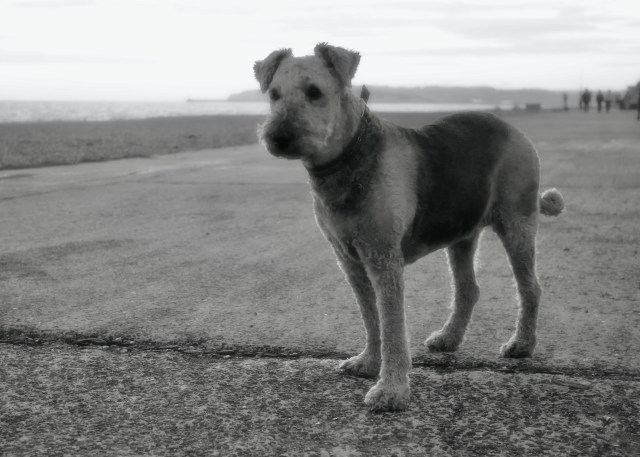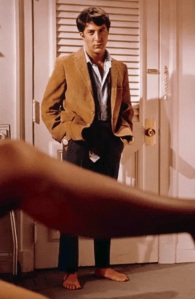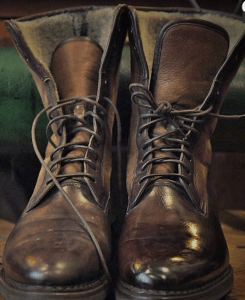
To tell the truth, I need to brush up on my lying. But more of that later.
In the meantime or because just when I feared all was lost I discovered four maybe five years ago a glimmer of light beamed out from my cathode ray tube, or whatever it is televisions presently use in the age of mantlepiece wall mounted larger than life screens?
My tv viewing had lost, for want of a better word, it’s shine. A life shaped and shared upon a series of series (or should that read seasons?) punctuating my weeks and months and years and school and college and work to be enjoyed, discussed and analysed by others of a similar disposition was long over. From The Old Grey Whistle Test and Monty Python, to The Sweeney and Spitting Image and latterly, albeit briefly, Line Of Duty, and The Bridge, television had been societal fun. Alas the fun’s been killed off since the turn of the century by streaming that by all accounts occurs at unconscionable hours of the day and night (bingeing) and a national obsession with food pornography and celebrity dancing. Is that why Brits are Europe’s most obese?
My saviour emerged from an unexpected direction in the format of a barn located somewhere in Sussex in which a smiling crew of artisans – a carpenter, saddle maker and brother watch mender, a bookbinder and cobbler, art restorer, an electronics engineer with a voltage tester and a ceramicist among a cast of similarly gifted repairers – comprise the stars of BBC’s The Repair Shop. The unmissable highlight of the midweek transforming traditionally the dullest viewing day of the seven (Wednesday) into something worth waiting for. An hour long programme in which tired and tattered family treasures are repaired, often to a condition superior to when they were new, by experts who, initially at least, took care to explain and illustrate the process of restoring items often seemingly beyond hope.
It’s good telly watching ceramicist Kirsten Ramsay take the jagged shards of a busted bowl (naturally belonging to the granddaughter of someone who’s octogenarian father made it and used it every Christmas or birthday as the centrepiece of the annual celebration pudding but alas in pieces for years in a box in the attic and which will reunite the family diaspora once repaired) and put them back together. First by cleaning then reassembled with adhesive and finally mixing paints in-order to cover over the repair cracks so that by completion there is never so much as a hint of the bowl ever being damaged in the first place. How about that?
Something to talk about. I love discussing all the items my friends and I have in need of that advanced tlc.
The sheer wonder doesn’t stop there. Ancient oil and water colour paintings are transformed from the dusty, dim and faded into radiant treasures by Lucia Scalisi, formerly of the Victoria & Albert Museum. She painstakingly cleans the lustreless images with solvent and where the paint has degraded and fallen away she mixes precise colour matches and with the smallest paint brushes known to man injects a transfusion of vibrancy.
What you soon realise is there is a not so fine line between a repair and a total restoration. The latest series kicked off with a pair of brothers and a family’s ice cream wagon that far from being a treasured heirloom appeared to have been dragged out of a landfill site. That’s how much they cared about it. They valued it so much it was falling to pieces. Hirsute metal worker Dominic ‘Dom’ Chinea practically built another replacement stall whilst being mindful to use as much of the original as possible, which wasn’t very much, lest his repair be mistaken for a replacement.
What I learnt with my post programme chats is that The Repair Shop is the ultimate Marmite show where for everyone like me looking forward to a leather bound book, or chair to be spruced there are others who consider it little more than suburban weepy dirge for those attached to frayed one eyed teddy bears and busted carriage clocks. The very first programme featured a broken clock in a wooden frame constructed by a blind watchmaker. Other items have been decapitated dolls, countless handmade toys, old boots (!) and models and faded and flaky paintings passed down through generations. All of which beg the question if such items mean so much to the family why on earth have they been allowed to decay? Some items, including the garden gate of a famous author and the model of an air ambulance, arrived as bits!
And having examined the item and learnt that it belonged to a grandfather who wanted it passed down the generations the team finish the provenance with killer question one: “what do you want us to do?” Isn’t answer is on the tin; Repair it.
Much of the fun, and the central criticism, is on the issue of whether the item’s owner and recipient will or will not burst into floods of tears upon seeing their treasured item so beautifully reborn thereby triggering emotions and memories of absent family members who are looking down on the barn thinking – ‘about bloody time’.
There are those who simply smile, tilting their heads from side to side before inquiring if they are permitted to touch whatever it is and then thank the team for doing a commendable job. They’re the mannered minority. On the other hand most, overwhelmed and overcome, catch their breath and reach for a hanky while endeavouring to put on a brave face.
For long term viewers it’s easy anticipate which way they’ll go by how long the show’s producers allow them to unfurl the family story. As a rule the longer the tale the more the blubbing. I’ve never timed them but in the early days guests would be allotted perhaps a minute or so to explain the relevance of their item allowing ample time for the repairer to analyse, discuss and perform the task. I always liked the way Will the carpenter applied plenty of shellack and Suzie lashings of saddle soap. It was a pleasure in earlier times to follow the course of the actual repair. Sadly many of the most recent episodes have been tilted less toward renovation and more toward provenance, reaction and blubber potential; I guess the rationale being the more tears the higher the viewing figures. My own soundings indicate the opposite. I know quite a number who’ve switched off precisely because of the blubbing.
What has improved immeasurably is the range of repairs and repairers. What began with metalwork, clocks, leatherwork and furniture now embraces the aforementioned ceramics and painting and footwear and books. Christopher Shaw, always jaunty and dapper in workwear and cap, repairs books that are little more than scraps of paper using a wondrous Japanese paper that resembles tissue but seems to have the strength and durability of leather.
And this brings me to the crux of the matter! Carpenter Will Kirk actually inspired me to try my hand at repairing what I’m guessing is a fin de siecle dressing table with three drawers and a swivel mirror. There was a good deal of sanding and glueing and staining and if I say so myself it’s…not bad. Applying the shellack was the best part. A mid century bookcase from Heals that I’d intended to apply the Will treatment didn’t fair so well.
My family has never been one for heirlooms. The only remaining treasured item from my infancy, a bear called Alec, my grandmother eugenically altered (different coloured fur, nose and eyeball) while I was in hospital as a toddler and which is now curated by my sister. On Wednesday gone (January 2025) toy restorers the effervescent Teddy Bear Ladies, Julie Tatchell and her pink barneted partner Amanda Middlemarch, plumped up and restitched what looked like one of Alec’s relations, a brother maybe? A 1948 Reference Atlas of Greater London without the Hammersmith Flyover, Westway, Ms 4 and 40 and the road in Whitton I grew up on and that I used as a boy could use some of Christopher Shaw’s skills. A stamp inside shows it was from The Daily Mirror; probably a review copy.

my boom box – BIGGER than it looks
There was the busted and broken writing slope of no familial significants as far as I am aware that had been tucked away in the attic and that I had repaired by Bodmin’s painstaking Mr.Runnels. Among his accomplishments a new and engraved leather writing top, a lock and key, a new hinge and the discovery of a secret compartment. Two of my father’s items I actually use to this day; a Clubmaster panatelas tin for staples and drawing pins (he switched to Sumatran cigars from Players Navy Cut nobody seemingly explaining that he shouldn’t inhale heavier and stronger cigar smoke the way he puffed fags); and his Wilkinson Sword nail cutter and file that I’m guessing dates back to the early sixties but which I am happy to report remains sharp and efficient still. Those and four pipes, a leather tobacco pouch and something, I’ve no idea its name, for packing down the baccy. Nothing there to test Repair Shop’s artisans and keep the nation on the edge of its seat. I need something exceptional and a story intense enough for tears.
I’ve been trying to get my JVC radio/cassette boom box working for years. The radio is fine but the cassette player went from chewing tapes to jamming them into a standstill. Perhaps inspired by the programme I dismantled it a few months backs instantly wishing I hadn’t. Before me a foreign language of printed circuits and wires that’s meat and veg for Repair Shop electrical wizard Mark Stuckey.
Lying is second nature to me but this was going to need a really good one to get it and me on to the telly. Then it came to me, for some reason midway through Butch Cassidy And The Sundance Kid, my route to tv stardom and a repaired boom box. My great uncle Earnest who saw his days out in a care home on the south coast. He’d bought the boom box in his late 80s as much for the cassette player and two huge speakers as the short wave radio reception. He’d wanted to listen to and record the music from the cities his brothers and my family lived and worked in. From Paris and Rome, Munich and Berlin to Tangiers, New York, Singapore and Hong Kong. The family diaspora as recorded and enjoyed by Uncle Earnest whilst looking at the sea from his bedroom window. It had been tough for him though, being pretty deaf and needing to crank up the volume, he was forever being asked to turn it down. One day a resident burst into his room and flung it on the floor. The force broke the extending aerial and cracked the tuning screen. All the family has cassettes he’d recorded and posted to us and it would be such a joy to be able to listen to them again now, on the machine they’d been recorded on. Not bad. I can see Mark Stuckey with his voltage tester.
And then the second killer question when the item (fingers crossed my boom box) is hidden beneath a piece of cloth on a table. ‘So, would you like to see it?’ I wonder if in any of the outakes somebody said “no”?
Don’t you love Wednesdays?











